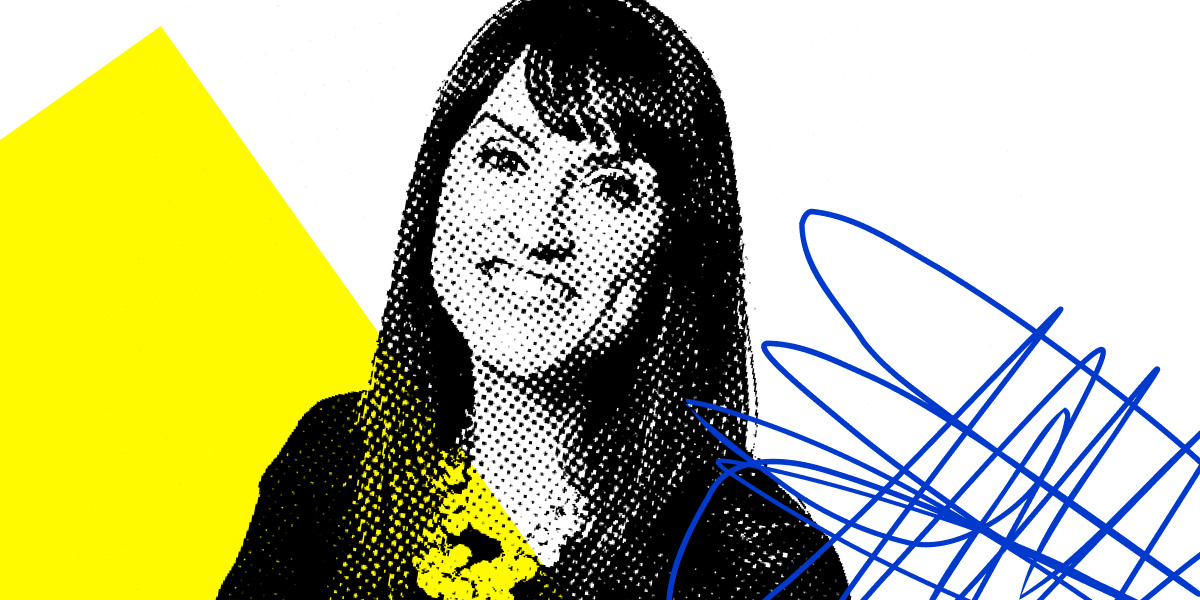Melissa Herron's Side Hustle is Fighting for Women in the Sandwich Generation
Determined to keep women in the workforce, this global marketing leader started a movement to rewrite the rules of managing career and caregiving.

I have a job I love at Salesforce, where I lead a marketing team focused on global campaigns. It’s fast-paced and creative, and I get to work with brilliant people. But there’s another part of my life that gives me an equal—if not deeper—sense of purpose: advocating for women in the workplace.
For the past four years, it’s been my side hustle. My passion project. Honestly, it’s what fills my cup.
In 2021, during the height of the pandemic, I created Wisdom, a career consultancy designed to support and elevate female talent. At the time, I was leading a team at another tech company. They were mostly early-career moms, and nearly every conversation came back to the juggle of work-life balance. Everyone was asking the same question: How are we supposed to do all of this?
At the same time, things at home were shifting in ways that required more of me than ever before. My youngest son had just been diagnosed on the autism spectrum, and my mother had been diagnosed with cancer. I was overwhelmed and exhausted.
On top of that, I was navigating a deeply toxic, always-on culture at work where caregiving was treated as a personal inconvenience rather than a reality of life. Many of the women in leadership around me had the privilege of outsourcing much of their home responsibilities, and the expectation—spoken or not—was that everyone else should operate the same way.
Eventually, something had to give. So I stepped away. I needed space to breathe—and to reconnect with purpose. I shared a series of honest LinkedIn posts about what women were experiencing, and to my surprise, the response was immediate and overwhelming. Women from every generation and every background said, “Your story is my story.” I realized just how hungry we all were for connection and community.
So I opened the doors to Wisdom.
In my first year, I mostly worked with female-led businesses on team-building. But the real magic surfaced when I started mentoring women one-on-one. Over 200 women later, I realized something powerful: regardless of geography, job title, or age, we were all wrestling with the same pressures. The “sandwich generation” wasn’t just a concept—it was our daily reality. Caring for aging parents. Caring for kids. Trying to maintain careers within systems that weren’t designed for any of it.
Wisdom grew quickly. I helped place women into roles, partnered with companies to strengthen their female talent pipelines, and guided women through transitions and reinventions. But at some point, I realized I didn’t want to monetize what felt like moral responsibility. I believe deeply that all of us should be doing whatever we can to keep women in the workforce. So I returned to full-time work and continued my advocacy as a passion project—still fueled by the same fire, now without the invoice.
As I continued supporting women through Wisdom—and simultaneously advocating for my son—I began to see an even broader truth: the modern workplace wasn’t designed for anyone who falls outside the narrow, traditional mold. The same rigid systems that made it challenging for women to thrive were equally unforgiving to neurodiverse individuals. Recognizing that gap, I expanded my advocacy to champion neuro-inclusive environments as well.
Today, the challenges for working women are only intensifying. The flexibility many women gained during the pandemic has disappeared in many places. A few years ago, I had a list of companies rethinking how work gets done. In 2025, that list is much shorter.
So when women come to me now, we don’t talk about “balance”—that word has never reflected reality. We talk about boundaries. About agency. About the importance of women supporting women, so that we can also support our families.
At Salesforce, I model the kind of culture I want to see. One woman on my team is caring for her mother through chemo, and she knows—without question—that her family comes first. Our team flexes around her: “She’s out Thursday; who’s got her meetings?” I can’t change every workplace, but I can shape the one I lead.
And through Wisdom, I’m working to influence the broader ecosystem—one message, one call, one LinkedIn DM at a time. If a woman reaches out, I take the call every time. That’s how progress happens: one woman refusing to let another fall through the cracks. Women absolutely deserve a seat at the table. But too often, that table wasn’t built with us—or our lived realities—in mind.
That’s why I advocate. That’s why Wisdom exists. Because if we can change the table, we can change the experience of every woman who takes a seat at it.
.webp)
